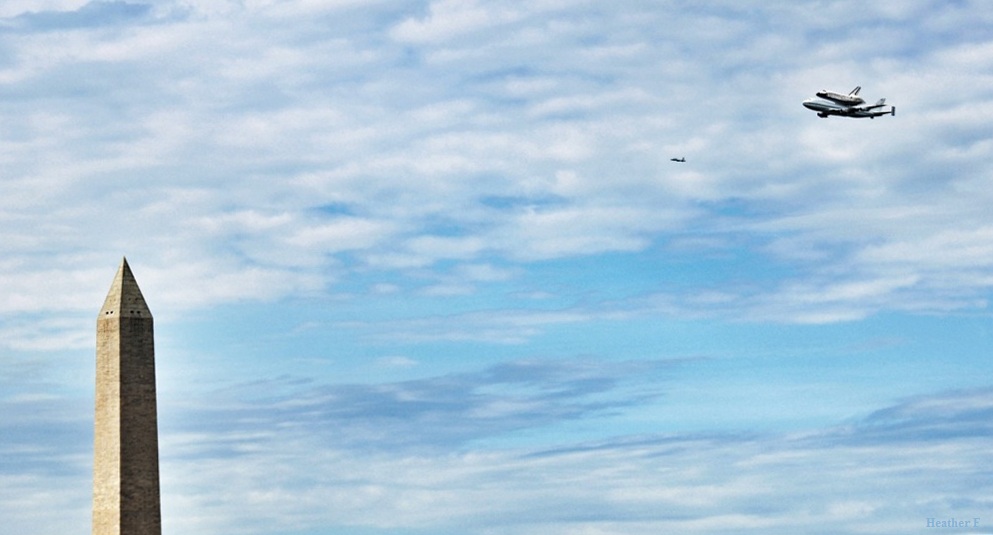
America’s Space Shuttle Discovery flew over the nation’s capital on April 17, to retire to its final resting place at the Smithsonian Institution, the world’s largest museum and research complex. Its final “flight” (piggy-backed) is dwarfed by its flight mileage in space: according to one source, it flew 148 million miles, more than the distance from the earth to the sun.
Its thirty-nine missions, from 1984 to 2011, is more flights than any other spacecraft in history has achieved.

Piggy-backed flyover of Washington, D.C., on April 17, 2012
Smithsonian Museums
The Smithsonian Institution has over 136 million museum items. According to Wikipedia, it is the largest museum complex in the world, with enough rooms and exhibits to captivate a tourist for many days, if not weeks.
Ropen Controversy
A Smithsonian blog post portrayed the ropen of Papua New Guinea as a “myth.” This caused many responses on other blog posts, early in 2011, critical of the reasoning of the writer, Brian Switek. Apparently, the Smithsonian has not responded to those comments. The ropen is reported, by some cryptozoologists, to be a modern living Rhamphorhynchoid pterosaur with intrinsic bioluminescence.

